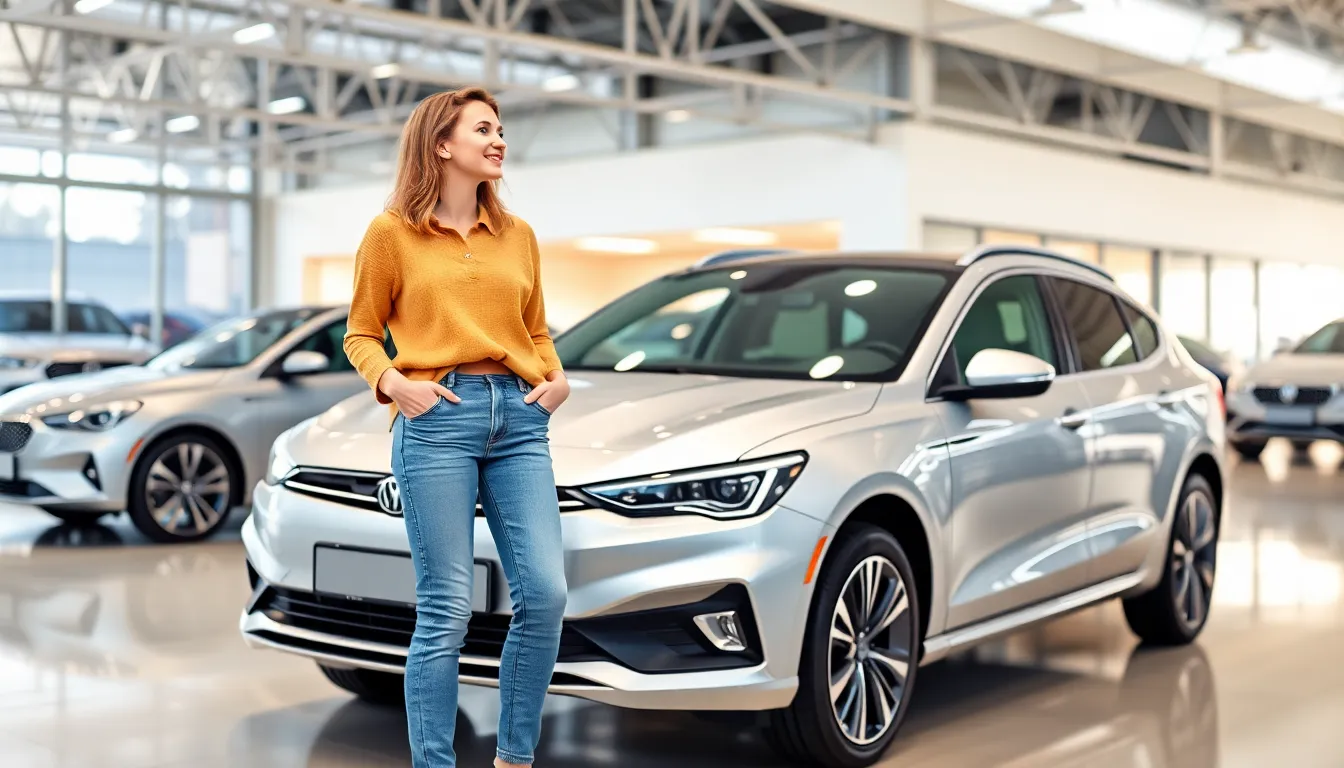When it comes to acquiring a new car, the age-old debate of lease versus purchase can feel like a game of rock-paper-scissors, but with much higher stakes. Should one commit to a long-term relationship with a vehicle or enjoy the thrill of a short-term fling? Each option has its perks, and understanding them can save a lot of headaches—and money.
Leasing offers the allure of driving a shiny new car every few years without the burden of ownership. On the flip side, purchasing means you can finally stop paying rent on that car you’ve been driving for years. It’s like deciding whether to rent an apartment or buy a mansion—both have their charm, but only one comes with a lifetime of memories (and no landlord). Dive in as we explore the pros and cons of leasing versus purchasing, helping you choose the best path for your automotive adventure.
Table of Contents
ToggleUnderstanding Lease Vs Purchase
The decision between leasing and purchasing involves different financial dynamics and personal preferences. Each option presents unique benefits and drawbacks that can influence a buyer’s choice.
Definition of Leasing
Leasing refers to a contract allowing an individual to use a vehicle for a specified period, typically two to four years. Monthly payments cover the vehicle’s depreciation during the lease term, making it often lower than loan payments for a purchase. Lessees generally enjoy lower upfront costs, often paying just a security deposit and the first month’s payment. At the end of the lease, drivers face the choice of returning the vehicle or purchasing it at a predetermined price. Leasing appeals to those who prefer driving new models without long-term financial commitments.
Definition of Purchasing
Purchasing involves buying a vehicle outright or through financing. Buyers own the car once they’ve paid in full or completed their loan payments. Monthly payments for financed vehicles usually cover both principal and interest, potentially leading to higher payments compared to leasing. Ownership means no mileage limits, and owners can customize their vehicles as desired. Long-term ownership may result in savings since there are no ongoing monthly payments after the loan period. Purchasing is ideal for those seeking stability and long-term investment in their vehicle.
Advantages of Leasing

Leasing provides multiple benefits for those considering a vehicle. Monthly payments generally remain lower compared to purchasing options, allowing for more budget flexibility.
Lower Initial Costs
Lower initial costs make leasing a popular choice. Many leases require little to no down payment, which reduces the upfront financial burden. Considerable savings can occur since the monthly payments primarily cover the vehicle’s depreciation. This structure makes newer models accessible to individuals who might not afford a substantial down payment on a purchase. Additionally, lessees often encounter fewer costs related to maintenance, as most leases encompass warranty coverage for the duration of the contract.
Flexibility and Convenience
Flexibility and convenience significantly enhance the leasing experience. Individuals can choose lease terms ranging from two to four years, aligning with personal preferences or evolving needs. Options during the lease’s end include returning the vehicle after the contract or buying it at a predetermined price. Many lessees appreciate having the freedom to drive a new vehicle every few years, staying in sync with the latest technology and safety features. Adjustments in lifestyle or family size can easily reflect in vehicle choices, thanks to the leasing model.
Advantages of Purchasing
Purchasing a vehicle offers several compelling advantages, especially for those seeking a long-term automotive solution.
Long-Term Investment
Investing in a vehicle brings long-term financial benefits. Owners build equity over time, unlike leasing where payments contribute to an asset they don’t own. Once the purchase is complete, no more monthly payments exist, leading to substantial savings in the long run. Vehicles typically last for many years, meaning an owner can enjoy their investment without continually incurring costs. Furthermore, purchasing a car outright can lead to better resale value when it comes time to upgrade.
Ownership Benefits
Ownership presents various perks that leasing does not. Freedom exists in customizing the vehicle, allowing owners to make changes that reflect their personal style and needs. They don’t adhere to mileage limits, which suits frequent travelers or those with longer commutes. Moreover, owners benefit from having a tangible asset that can appreciate over time, depending on the market. Maintenance responsibilities fall on the owner, but this can also translate into more control over how the car is cared for and serviced.
Factors to Consider When Choosing
When deciding between leasing and purchasing a vehicle, several key factors come into play. Evaluating financial implications and analyzing usage and needs are crucial for making an informed choice.
Financial Implications
Leasing typically results in lower monthly payments compared to purchasing. It often requires smaller upfront costs, making newer models accessible. However, lessees may face continued payments due to the nature of leasing agreements. Conversely, purchasing a vehicle leads to ownership, allowing individuals to build equity over time. Once the payments are complete, owners enjoy the benefit of no monthly obligations. This can translate into long-term savings. Additionally, financing a purchase involves higher initial costs but may be offset by the absence of mileage restrictions and customization flexibility.
Usage and Needs
Usage patterns significantly influence the choice between leasing and purchasing. For frequent drivers or those with long commutes, ownership may provide better value due to unlimited mileage. Customizing vehicles for specific needs can also be a priority for owners. Leasing, on the other hand, caters to individuals desiring short-term vehicle access and flexibility. Those who prefer driving the latest models or changing cars every few years may find leasing more appealing. Consideration of lifestyle changes, such as family size or job relocation, can further impact vehicle needs and preferences.
Deciding between leasing and purchasing a vehicle ultimately comes down to individual preferences and financial goals. Those who value flexibility and lower upfront costs may lean toward leasing, enjoying the perks of driving a new car every few years. On the other hand, individuals seeking long-term investment and ownership benefits might find purchasing more appealing.
Understanding the unique advantages of each option can empower potential car buyers to make informed decisions. Whether it’s the allure of a new model or the satisfaction of owning a vehicle outright, each path offers distinct rewards. By carefully weighing these factors, readers can choose the best option that aligns with their lifestyle and financial situation.








